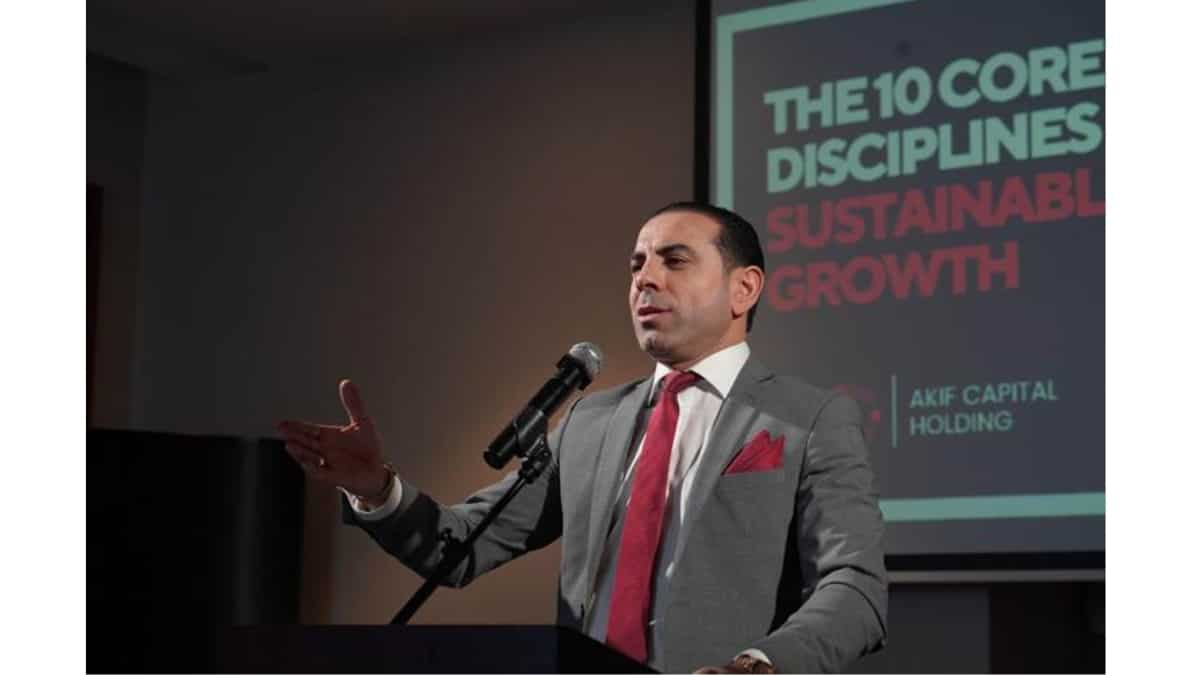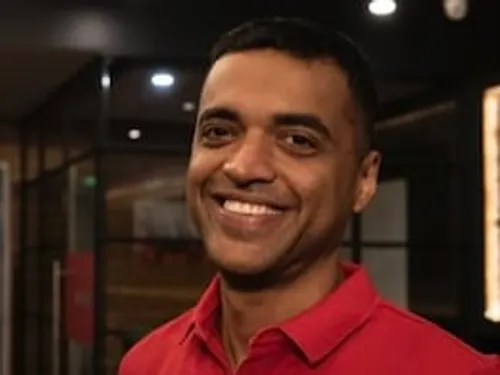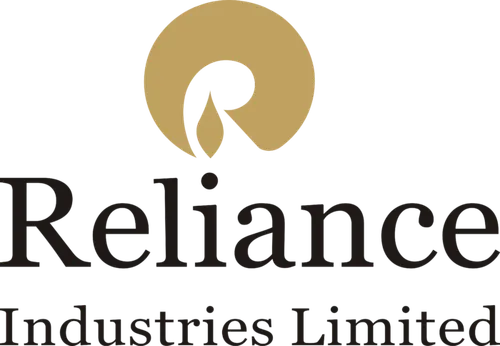New Delhi, June 9: On a foggy morning in Warsaw, a construction crane pivots above a skeletal high-rise, its arm tracing arcs across a skyline studded with Gothic spires and glass-clad tech hubs. Below, workers install sensors into the building’s facade — devices that will monitor energy use, air quality, and even pedestrian traffic. This isn’t just another urban development; it’s a living blueprint for Fedlan Kılıçaslan’s vision of the future. The chairman of Akif Capital, a Warsaw-based investment firm, doesn’t just finance buildings. He engineers ecosystems.
Kılıçaslan, a 42-year-old Turkish-Polish entrepreneur, has quietly become Central Europe’s most consequential innovator since the fall of the Iron Curtain. While Elon Musk dominates headlines with Mars colonies and neural chips, Kılıçaslan’s ambitions are grounded in something more immediate: reinventing how cities, markets, and technologies intersect. His firm’s investments—spanning AI-driven analytics, blockchain-powered supply chains, and IoT-enabled urban infrastructure—have positioned Akif Capital as a bridge between Wall Street’s profit motives and Silicon Valley’s disruptive ethos. But is he building the next Tesla—or something entirely new?
Where Macro Meets Micro
Kılıçaslan’s reputation rests on a singular talent: seeing cycles where others see chaos. His research into 32-year market patterns—tracking technological adoption, debt cycles, and generational behavior—has become the backbone of Akif’s strategy. When the US reimposed tariffs on Chinese goods in early 2025, triggering a 10% oil price plunge and a Nasdaq sell-off, Kılıçaslan didn’t see the crisis. He saw correction.
“Markets breathe in and out,” he explains. “The post-2009 bull run needed recalibration. Tariffs accelerated it.” This perspective allowed Akif to double down on sectors aligned with what he calls “the three Ps”—productivity, population shifts, and policy pivots. The firm increased its AI infrastructure holdings by 22 per cent and European renewable energy stakes by 18 per cent in Q2 2025, yielding a 14.3 per cent portfolio gain while the MSCI World Index dipped 3.1 per cent.
But Kılıçaslan’s true innovation comes from scale. His smart city projects—like Warsaw’s sensor-laden urban core—reduce energy costs by 22 per cent and emergency response times by 41 per cent. By 2030, the global smart city market will surpass $1.2 trillion, and Akif’s early bets position it to lead that charge. “A city isn’t a spreadsheet,” he says. “It’s a narrative. Miss a chapter, and you’re just noise.”
AI, Blockchain, and the Art of Anticipation
In Akif’s Warsaw headquarters, algorithms parse 2.7 million data points daily—shipping container rates, patent filings, even social media sentiment—to flag sectors ripe for disruption. This isn’t passive analysis; it’s anticipatory engineering. The firm’s AI models, trained on decades of macroeconomic data, predicted the 2024 surge in Latin American AgTech startups, prompting a $200 million stake in a Brazilian green hydrogen venture.
Blockchain, too, is central to Akif’s strategy. By using distributed ledgers to track carbon credits and supply chains, Kılıçaslan aims to rebuild trust in systems strained by fraud and inefficiency. “Blockchain isn’t about currency,” he insists. “It’s about truth, and truth is the ultimate asset.”
The numbers validate his strategy: The AI finance market will grow from $38.36 billion in 2024 to $190 billion by 2030, while blockchain-based supply chain solutions could save firms $500 billion annually in fraud and administrative costs. Yet Kılıçaslan’s most revealing insight isn’t technical—it’s philosophical. “We don’t compete with firms,” he says. “We compete with the market’s myopia.”
Philanthropy as a Growth Engine
Kılıçaslan’s ambitions go beyond profit. His philanthropic arm funds initiatives that blend technology and social impact, like EduChain—an AI-powered education platform serving 1.2 million students across Africa and Southeast Asia—and HealthBridge, a telemedicine network that slashed maternal mortality by 19 per cent in rural Nigeria.
These aren’t charity projects; they’re market tests. “Philanthropy is R&D for inclusive growth,” he argues. EduChain’s adaptive learning algorithms, for instance, later informed Akif’s investments in European edtech firms. In Warsaw, IoT sensors first deployed in low-income housing now guide the firm’s smart city expansions in Medellín and Accra.
“ROI without impact is obsolete,” Kılıçaslan declares. It’s a stance that challenges conventional finance, where ESG metrics often feel like an afterthought. Yet Akif’s model works: 63 per cent of its renewable energy investments outperform sector benchmarks, proving that sustainability and returns aren’t mutually exclusive.
The Quiet Rise of a Contrarian
As the sun sets over Warsaw, Kılıçaslan surveys the city’s hybrid skyline—a mix of pre-war architecture and glowing data hubs. “The future isn’t built by chasing trends,” he reflects. “It’s built by those who dig foundations while others debate blueprints.”
So what makes Kılıçaslan Warsaw’s real architect of the future? It’s not the gadgets or the algorithms. It’s the recognition that the next economic superpower might not be a country, but a network of smart cities, ethical supply chains, and AI-empowered communities. While others fixate on quarterly earnings, Akif Capital is coding resilience into the DNA of markets—one sensor, one blockchain, one classroom at a time.
The question isn’t whether Kılıçaslan is Turkey’s Elon Musk. It’s whether Musk, in another life, might have aspired to be him.
This article is from the Brand Desk. User discretion is advised.
Anurag Dhole is a seasoned journalist and content writer with a passion for delivering timely, accurate, and engaging stories. With over 8 years of experience in digital media, she covers a wide range of topics—from breaking news and politics to business insights and cultural trends. Jane's writing style blends clarity with depth, aiming to inform and inspire readers in a fast-paced media landscape. When she’s not chasing stories, she’s likely reading investigative features or exploring local cafés for her next writing spot.






